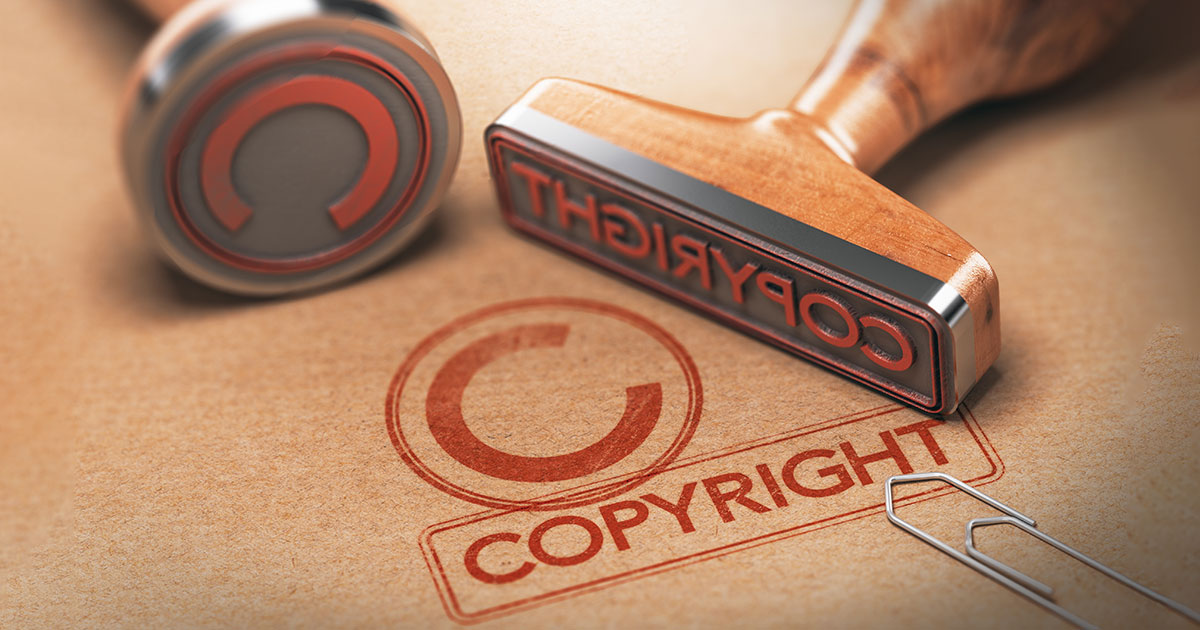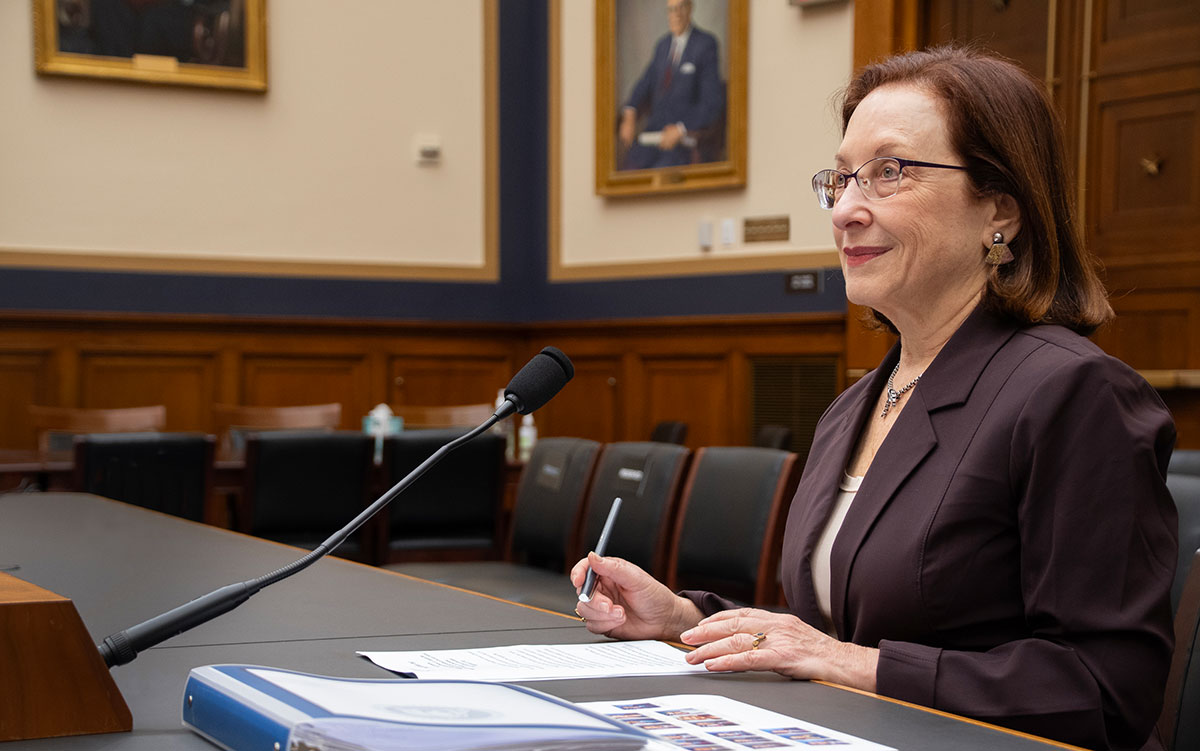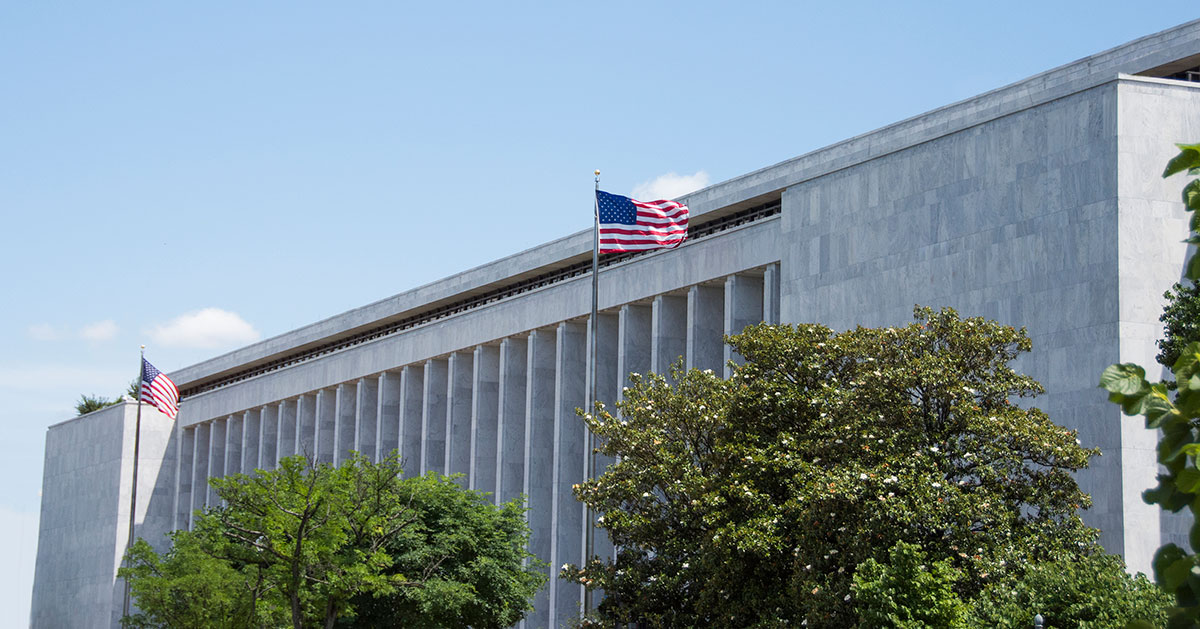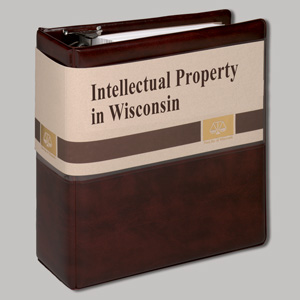
The U.S. Copyright Office (Office) is a resource for lawyers and their clients as they navigate fast-paced technological advancements and the intellectual property (IP) landscape. In contrast to the way patents work, copyright is an automatic right in the United States. Copyright protects original works of authorship as soon as an author fixes the work in a tangible medium of expression. Copyright law affects everyone and sits at the forefront of important domestic and international conversations around artificial intelligence (AI) and entrepreneurship.
In this article, we introduce the Office, focusing on hot topics in copyright and resources for Wisconsin lawyers.
About the Copyright Office
The Office is the federal agency charged by statute with the administration of U.S. copyright law (Title 17).1 The Register of Copyrights, also the director of the agency, advises Congress, provides information and assistance to courts and executive branch agencies, and conducts studies on national and international issues relating to copyright and other matters arising under Title 17. The Office also registers copyright claims, records information about copyright ownership, and communicates with the public about copyright issues.
 Nora Scheland is a public affairs specialist in the Office of Public Information and Education at the U.S. Copyright Office, specializing in strategic communications, media relations, and social media. She previously held multiple communications roles within the Federal Bureau of Investigation’s Office of Public Affairs. She earned a bachelor’s degree in English from Bryn Mawr College.
Nora Scheland is a public affairs specialist in the Office of Public Information and Education at the U.S. Copyright Office, specializing in strategic communications, media relations, and social media. She previously held multiple communications roles within the Federal Bureau of Investigation’s Office of Public Affairs. She earned a bachelor’s degree in English from Bryn Mawr College.
 Laura Kaiser, George Washington University Law School 2021,is an attorney-advisor in the Office of Public Information and Education at the U.S. Copyright Office, providing advice on legal accuracy and clarity when developing public facing materials. Previously, as a paralegal with the Copyright Claims Board, she helped establish a new dispute resolution forum for copyright issues. In addition to her JD, she earned a BA in comparative literature from New York University.
Laura Kaiser, George Washington University Law School 2021,is an attorney-advisor in the Office of Public Information and Education at the U.S. Copyright Office, providing advice on legal accuracy and clarity when developing public facing materials. Previously, as a paralegal with the Copyright Claims Board, she helped establish a new dispute resolution forum for copyright issues. In addition to her JD, she earned a BA in comparative literature from New York University.
The Office’s mission is to promote creativity and free expression by administering the nation’s copyright laws and by providing impartial, expert advice on copyright law and policy for the benefit of all. The Office has been part of the Library of Congress since 1870 and was recognized as a separate department in 1897. The Office is one of two IP agencies within the federal government. The copyright system is administered by the Copyright Office in the legislative branch of government, while the patent and trademark systems are administered by the U.S. Patent and Trademark Office, within the U.S. Department of Commerce, in the executive branch.
In 2022, the Office debuted a five-year strategic plan, titled
Fostering Creativity and Enriching Culture,2 which outlined four strategic pillars to guide the Office’s work: copyright for all, impartial expertise, continuous development, and enhanced use of data. The Office’s overarching goal is copyright for all, which guides the Office’s work to make the copyright system understandable and accessible to the public, including historically underserved communities.
The Office employs about 450 people, working on copyright registration, rulemaking and litigation, international policy, economics and copyright, public information and education, copyright records, and Office operations. Each year, the Office issues around half a million copyright registrations.
What Is Copyright?
Copyright law, like patent law, originates in the U.S. Constitution: Article I, section 8 states that “Congress shall have Power … To promote the Progress of Science and useful Arts, by securing for limited Times to Authors and Inventors the exclusive Right to their respective Writings and Discoveries,” and the Constitution’s framers intended copyright to be “the engine of free expression.”3 Copyright law has evolved over the centuries. IP comprises copyright, patent, trademark, and trade secret law. Generally, copyrights protect creative expression, patents protect inventions, trademarks protect and identify brands, and trade secrets protect commercially valuable confidential information.
Copyright protects original works of authorship that are fixed in a tangible form of expression. In copyright law, there are many types of works of authorship: paintings, photographs, musical compositions, sound recordings, computer programs, books, blog posts, movies, architectural works, and more. Under the law, works are considered original when they are independently created by a human author and express a modicum of creativity. Independent creation means that the author creates it themselves, without copying, and sufficient creativity means that the author’s creative expression must be more than trivial, but it does not need to be novel (unlike the novelty patent standard).
A work is fixed when it is captured (either by or under the authority of an author) in a sufficiently permanent medium so that it can be perceived, reproduced, or communicated for more than a transitory duration. The definition of fixation depends on the type of work; it might involve writing, recording an audiovisual or musical work into a digital file, or capturing a photo with a camera. This concept can be difficult to explain to clients. For example, the artistic rendering or design for a fireworks display is fixed, but the fireworks themselves are ephemeral and not fixed, meaning they are uncopyrightable.
Copyright law grants copyright owners a bundle of exclusive rights, including the rights to reproduce a work, create derivative works, distribute copies or phonorecords, perform or display a work publicly, and perform sound recordings publicly by digital audio transmission. The law also says that the copyright owner has the right to authorize others to exercise any of these exclusive rights.
Copyright generally carries a term of the life of the author plus 70 years (although there are complexities, not discussed here), making copyright an important consideration not only for attorneys who focus on IP law but also those who concentrate in estate planning and administration. The Office provides research tools and educational materials, such as the
Compendium of U.S. Copyright Office Practices, Third Edition and circulars,4 about the development of the law, copyright terms, the public domain, and fair use. The Office has also translated some key circulars and educational resources into Spanish.5

Register of Copyrights Shira Perlmutter providing testimony to Congress.
Copyright Registration and Its Benefits
Though copyright protection is automatic once the requirements mentioned above are met, copyright registration offers several important benefits. When the Office receives a registration application, a trained registration specialist reviews it to determine whether the work constitutes copyrightable subject matter and the applicant has met other legal and formal requirements. When the Office approves a registration, the owner receives a registration certificate, and the Office updates the public record with the details of ownership (for example, copyright owner’s name, title of the work, type of work, date of creation).
Registration is necessary for a copyright owner to enforce their exclusive rights through litigation. Timely registration allows copyright owners to seek certain types of monetary damages and attorney fees in a lawsuit. The registration record also includes information on who to contact for permission to use the work, facilitating the licensing marketplace and enabling copyright owners to access a revenue stream from their work. Until recently, claims for copyright infringement needed to be raised in federal court. In 2020, the law changed, and there is now a copyright small claims option, the Copyright Claims Board (CCB), discussed further below.
There is one place to register claims to copyright in the United States: the Copyright Office. Applying for copyright registration is straightforward. The Office encourages applicants to file online because it is streamlined and results in a faster disposition. The Office does accept paper applications, but paper-based processes take longer and can cost more. To apply to register a work, applicants must compile three essential elements: a completed application form, a nonrefundable filing fee, and a nonreturnable deposit. A deposit is a copy or copies of the work being registered.
The Office routinely publishes average registration processing times on the website, and for the six-month period between Oct. 1, 2023, and March 31, 2024, the average processing time for all claims was just over eight weeks and was faster for some claims filed entirely online.6 These historically low processing times underline the Office’s commitment to making the copyright system accessible.
Copyright Office Regulatory Responsibilities
By statute, Congress has delegated authority to the Office and the Register of Copyrights to develop regulations concerning certain areas of copyright law. The Office of General Counsel is responsible for drafting regulations and rulemakings and does so through the government’s standard notice-and-comment process in the
Federal Register. The Office publishes all open and closed rulemakings on copyright.gov and notifies the public and stakeholders through regular public statements.7
The Office is conducting its ninth triennial section 1201 proceeding8 under the Digital Millennium Copyright Act (DMCA).9 In these proceedings, the Librarian of Congress, upon the recommendation of the Register of Copyrights, may adopt temporary exemptions to the section 1201 prohibition against circumvention of technological measures that control access to copyrighted works. The ninth triennial rulemaking began in summer 2023 and will conclude with a final rule in October 2024.
The Office is committed to ensuring the registration process is accessible and seeks public feedback. Recently, after a period of public comment, the Office announced a final rule implementing a new group option for registering frequently updated news websites.10 That registration option is now available for use.

The U.S. Copyright Office is part of the Library of Congress, both housed in the James Madison Memorial Building in Washington D.C.
New at the Copyright Office
Copyright Claims Board. The Copyright Claims Board (CCB) is a three-member governmental tribunal designed to be an accessible and more affordable alternative to federal court. It can resolve certain copyright disputes involving claims with damages of no more than $30,000. The CCB was established through the Copyright Alternative in Small-Claims Enforcement Act of 2020 (CASE Act),11 which Congress passed in December 2020. The CCB is an option Wisconsin lawyers should consider, whether representing a claimant or a respondent.
The CCB’s matters are decided by a tribunal of three officers, attorneys with decades of experience in copyright law. All CCB proceedings are voluntary – respondents may opt out – and are held virtually. The CCB can hear three types of disputes: claims for copyright infringement, claims seeking a declaration of noninfringement, and claims regarding misrepresentations when filing a takedown notice or counternotice under the DMCA. CCB proceedings are designed to be streamlined, including limited discovery and standard interrogatories and document production. The CCB will rarely grant a request for use of expert witnesses.
The CCB is for all types of copyright owners and users, whether individuals, partnerships, or businesses. Parties can, but are not required to, hire an attorney, because the CCB’s processes are designed for self-represented individuals. For parties interested in legal advice and guidance, the CCB maintains a list of law school clinics and pro bono organizations that have indicated they are willing to assist CCB participants. (Law clinics and pro bono organizations that might be interested in participating should email
asktheboard@ccb.gov.) Since opening in 2022, the CCB has received over 900 claims, issued final determinations, and facilitated settlements. The Office recently began publishing key CCB statistics, which show how claimants and respondents are using the CCB and illustrate the value of having an alternative to federal court for resolving smaller copyright disputes.12
Visit the CCB’s website at ccb.gov for more information, access to the CCB’s electronic filing and case management system, and the CCB Handbook,13 the CCB’s practice manual. Potential claimants and respondents may email the board with questions at
asktheboard@ccb.gov.
Copyright and Artificial Intelligence (AI). In early 2023, the Copyright Office launched an initiative to examine copyright law and policy issues raised by AI technology. The issues range from questions about the copyrightability of AI-generated works to the use of copyrighted works to train AI models. These concerns are being discussed widely across all parts of the copyright system. The Office will issue a report,
Copyright and Artificial Intelligence, in several parts, analyzing the issues and making recommendations as to any appropriate legislative or regulatory action. Part 1 of the report, focusing on digital replicas, was published on July 31, 2024.14
In the early stages of the AI initiative, the Officeissued copyright registration guidance15 for creators who are already using AI in their works, hosted public listening sessions16 and webinars to gather questions and concerns from a broad group of stakeholders and the public, and published a notice of inquiry17 in the
Federal Register seeking input from the public. The notice of inquiry closed in December 2023 and received more than 10,000 comments, which the Office has reviewed and is analyzing as part of its study.
Subsequent parts of the report will address the copyrightability of works incorporating AI-generated material, the legal implications of training AI models on copyright-protected works, and the allocation of potential liability for AI-generated outputs that might infringe.
Enterprise Copyright System. Because copyright registration helps to build the public record of creativity in the United States, researchers from across the globe contact the Office to investigate copyright ownership. The Office is building a new Enterprise Copyright System (ECS) to make all the Office’s services digitized, interconnected, searchable, and easy to navigate. The ECS integrates and updates all the Office’s technology-based services, including building a redesigned and easier-to-use registration system, developing an online recordation system that is more efficient than the paper-based process, building a new online public catalog with improved functionality over legacy systems, and implementing new tools to streamline the Office’s review of licensing statements of account.
The Copyright Public Records System (CPRS) pilot, also part of the ECS, is a powerful search engine that provides easy filtering capability and incorporates a more user-centered design. The CPRS also includes images and searchable metadata from an initial release of card catalog registration applications from the period 1909-1945. The Office is encouraging copyright stakeholders to leverage the CPRS and its advanced search capabilities for research and will provide resources to teach the public how to use it.
Economic Research and Copyright
The Office hired a chief economist for the first time in 2022, building a new capacity for economic research within the Office of Policy and International Affairs. Since then, the team has expanded and added more economists and a statistician. Their goal is to cultivate scientific evidence to further inform decisions relevant to copyright policy and the administration of copyright systems. These economics subject-matter experts advise the Register of Copyrights and the senior team in line with the Office’s strategic plan, enhancing use of data in operations and decision-making.
The staff engage in work aimed at 1) producing new policy-relevant research on copyright, 2) encouraging and facilitating external policy-relevant research on copyright, and 3) assessing and applying existing economic research to ongoing policy and operational questions. In 2024, the Office published
The Resilience of Creativity: An Examination of the COVID-19 Impact on Copyright-Reliant Industries and Their Subsequent Recovery,18 which examined the effects on and subsequent recovery from the COVID-19 pandemic of copyright-reliant industries.
Get in Touch with the Copyright Office
The Register has spoken about the challenges IP attorneys face in ensuring awareness and understanding of what the copyright system is, what it means, and how it works. One of her priorities is to ensure that the Office is as accessible as possible to all stakeholders in the copyright system. The Office wants to hear from stakeholders, whether they are IP attorneys, members of Congress, creatives, or advocates, and accepts requests for staff members to speak in communities. Request a Copyright Office speaker by completing the speaker request form.19
The Office has a public information line that is staffed Monday to Friday (except federal holidays) from 8:30 a.m. to 5:00 p.m. Eastern time by English and Spanish speakers. Call the Office at (202) 707-3000 or (877) 476-0778 (toll-free), or submit a question on the website.20
Also of Interest
Help Protect Clients’ Intellectual Property

Nearly every business has intellectual property (IP), but some might not realize it. Identifying and protecting clients’ IP requires familiarity with the pertinent laws.
Intellectual Property in Wisconsin fulfills that need for Wisconsin attorneys.
Intellectual Property in Wisconsin is one of the few books that brings together the many facets of IP law in Wisconsin. It provides the guidance you need to understand what can and can’t be copyrighted; advise clients on trademark care and enforcement; protect patents by studying a sample patent application and learning about enforcement tools and infringement penalties; lock down trade secrets; know how to proceed if a person’s identity is used improperly for commercial gain; find out the basics of agreements, royalties, and risks in technology licensing; and learn the ways in which Wisconsin restricts false advertising.
Intellectual Property in Wisconsin is packed with relevant case law, time-saving practice tips, checklists, cautions, caveats, sample language, and practice guides.
Provide greater value to your existing clients and increase the value of your practice to potential clients. Order today!
https://marketplace.wisbar.org/products?pid=AK0251
Endnotes
1 U.S. Copyright Off.,
Copyright Law of the United States (Title 17),
https://www.copyright.gov/title17/ (last visited Aug. 9, 2024). Unless otherwise indicated, all websites and documents were last visited Aug. 9, 2024.
2 U.S. Copyright Off.,
Strategic Plan 2022 – 2026: Fostering Creativity & Enriching Culture,
https://copyright.gov/reports/strategic-plan/USCO-strategic2022-2026.pdf.
3 Harper & Row Publishers Inc. v. Nation Enters., 471 U.S. 539, 558 (1985).
4 U.S. Copyright Off.,
Compendium of U.S. Copyright Office Practices,
https://www.copyright.gov/comp3/; U.S. Copyright Off.,
Circulars,
https://copyright.gov/circs/.
5 See U.S. Copyright Off.,
El derecho de autor en español,
https://copyright.gov/espanol/.
6 Registration Processing Times,
https://www.copyright.gov/registration/docs/processing-times-faqs.pdf.
7 U.S. Copyright Off.,
Rulemakings,
https://copyright.gov/rulemaking/ (last visited Aug. 9, 2024).
8 U.S. Copyright Off.,
Ninth Triennial Section 1201 Proceeding, 2024 Cycle,
https://copyright.gov/1201/2024/.
9 Digital Millennium Copyright Act, Pub. L. No. 105-304, 112 Stat. 2860 (1998) (codified at scattered sections of 17 U.S.C.).
10
U.S.
Copyright Office Issues Final Rule to Create New Group Registration Option for Updates to News Websites;Available Now (July 22, 2024),
https://www.copyright.gov/newsnet/2024/1047.html.
11 17 U.S.C. ch. 15.
12 Copyright Claims Bd.,
Key Statistics (updated April 2024),
https://ccb.gov/CCB-Statistics-and-FAQs.pdf.
13 Copyright Claims Bd.,
Copyright Claims Board Handbook,
https://ccb.gov/handbook/.
14 See U.S. Copyright Off.,
Copyright and Artificial Intelligence,
https://copyright.gov/ai/.
15 U.S. Copyright Off.,
Copyright Registration Guidance: Works Containing Material Generated by Artificial Intelligence (March 16, 2023),
https://copyright.gov/ai/ai_policy_guidance.pdf.
16 See U.S. Copyright Off.,
Spring 2023 AI Listening Sessions,
https://www.copyright.gov/ai/listening-sessions.html.
17 U.S. Copyright Off.,
Artificial Intelligence Study,
https://www.copyright.gov/policy/artificial-intelligence/.
18
https://www.copyright.gov/economic-research/resilience-of-creativity/resilience-of-creativity-full-report.pdf.
19 U.S. Copyright Off.,
Speaker Request Form,
https://www.copyright.gov/forms/speaker-request.html.
20 U.S. Copyright Off.,
Contact Form,
https://www.copyright.gov/help/.
» Cite this article:
97 Wis. Law. 24-29 (November 2024).
